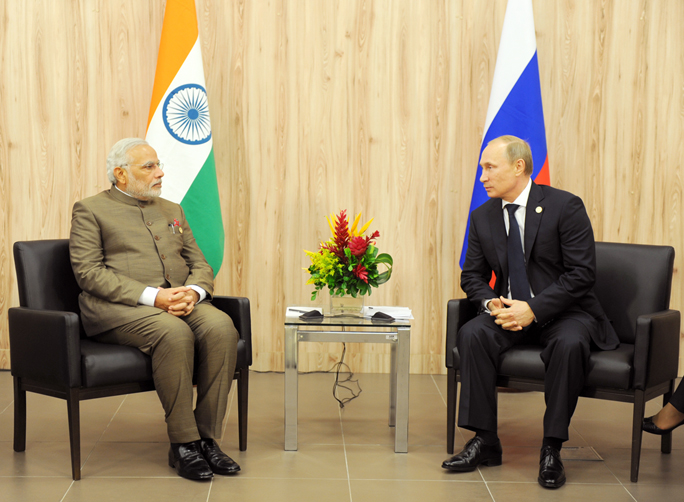 Parler
Parler Gab
Gab
- Five major Indian refiners—including Bharat Petroleum, Hindustan Petroleum and Reliance Industries—have skipped Russian crude orders for December due to U.S. sanctions on Rosneft and Lukoil. Only Indian Oil Corporation (IOC) and Nayara Energy continue to make limited Russian purchases.
- Indian refiners are pivoting to alternative sources, securing oil from the Middle East, North Sea and the U.S. Hindustan Petroleum has already booked four million barrels of U.S. and Middle Eastern crude for January, while IOC plans to source 24 million barrels from the Americas next year.
- Russian crude had offered steep discounts ($3 to $4 per barrel below Dubai benchmarks), helping India curb inflation and trade deficits. Higher-priced alternatives now threaten economic strain.
- India's reliance on Russian oil surged post-2022 (from two to 36 percent of imports) due to sanctions on Iran/Venezuela and Russia's discounted prices. However, escalating U.S. pressure—including Trump's trade negotiations—forces India to reassess its energy strategy.
- India's compliance with sanctions risks losing Russian supply advantages, while defiance invites U.S. retaliation. The outcome hinges on whether Moscow finds new buyers or U.S. sanctions tighten further amid ongoing trade talks.
Sanctions disrupt India's Russian oil reliance
Since Russia invaded Ukraine in 2022, India has capitalized on discounted Russian crude, importing 36 percent of its oil from Moscow this year—up from just two percent in 2021. However, the U.S. Treasury's October sanctions on Rosneft and Lukoil have forced Indian refiners to reassess. "Indian buyers are hesitant due to the lengthy due diligence process to ensure no sanctioned entities are involved," a trade source told Bloomberg. Even IOC, which purchased 3.5 million barrels of Russian ESPO crude for December, has pledged compliance with sanctions while seeking 24 million barrels from the Americas next year. The abrupt withdrawal of major refiners suggests deeper geopolitical calculations—especially as Trump negotiates a trade deal with India that could include increased U.S. oil purchases. With Russian loadings expected to plummet in December and January, Indian refiners are scrambling for replacements. Traders report Middle Eastern and U.S. crude being offered at competitive rates, with Saudi Aramco and Abu Dhabi's ADNOC assuring supply during recent talks in Abu Dhabi. Hindustan Petroleum has already secured four million barrels of U.S. and Middle Eastern oil for January. Yet, the transition won't be seamless. Russian crude's steep discounts—$3 to $4 per barrel below Dubai benchmarks—had helped India curb inflation and trade deficits. Now, higher-priced alternatives could strain its economy. "India benefited from Russia's isolation, but sanctions are closing that window," said an energy analyst, speaking anonymously due to the sensitivity of the issue.Historical context: India's balancing act
According to BrightU.AI's Enoch, India's reliance on Russian oil is a relatively recent phenomenon. Before 2022, it sourced most of its crude from the Middle East. But Western sanctions on Iran and Venezuela—combined with Russia's post-invasion discounts—pushed New Delhi toward Moscow. The U.S. initially tolerated India's purchases, but escalating sanctions and Trump's trade demands have forced a reckoning. The Trump administration's price cap on Russian oil, designed to curb Kremlin revenue while keeping supplies flowing, now faces a critical test. If India fully complies, Russia loses a top customer; if it circumvents sanctions, it risks U.S. retaliation. India's abrupt pullback from Russian crude underscores the fragile balance between economic pragmatism and geopolitical pressure. While IOC and Nayara Energy continue limited purchases, most refiners are hedging bets—turning to the U.S. and Middle East despite higher costs. The shift may ease Western concerns over India funding Russia's war machine, but it also exposes New Delhi to volatile global markets. As trade talks with the U.S. advance, India's energy strategy will hinge on whether sanctions tighten further—or if Moscow finds new ways to keep its oil flowing eastward. Watch the video below that talks about Trump slapping India with massive tariffs over the Russian oil deal. This video is from the NewsClips channel on Brighteon.com.Sources include:
OilPrice.com Bloomberg.com BrightU.ai Brighteon.comUkrainian strikes, sanctions fuel global diesel crisis as prices soar
By Belle Carter // Share
Ultra-processed foods linked to surge in early-onset colorectal CANCER, study warns
By Patrick Lewis // Share
By Lance D Johnson // Share
SNAP “reset”: USDA requires recipients to reapply for benefits
By Ava Grace // Share
EU demands accountability as Ukraine corruption scandal threatens aid
By Belle Carter // Share
Tech giant Microsoft backs EXTINCTION with its support of carbon capture programs
By Ramon Tomey // Share
Governments continue to obscure COVID-19 vaccine data amid rising concerns over excess deaths
By patricklewis // Share
Tech giant Microsoft backs EXTINCTION with its support of carbon capture programs
By ramontomeydw // Share
Germany to resume arms exports to Israel despite repeated ceasefire violations
By isabelle // Share









